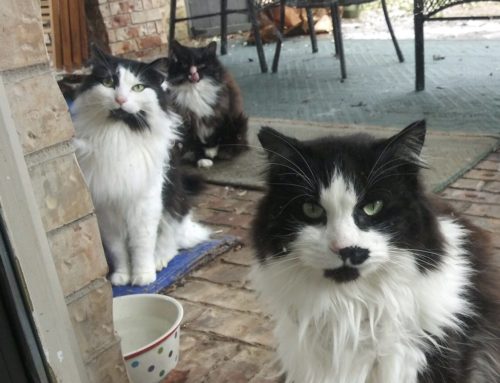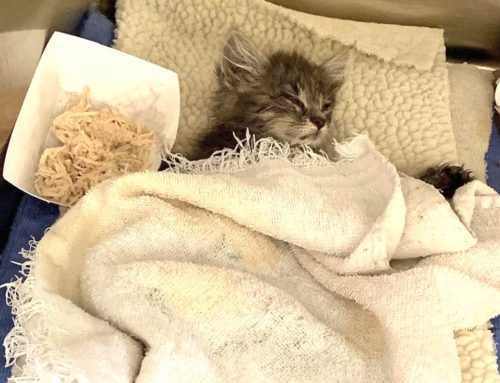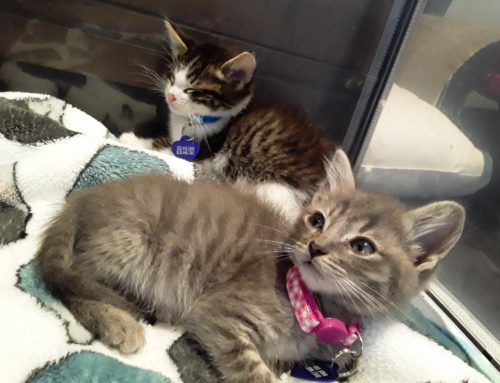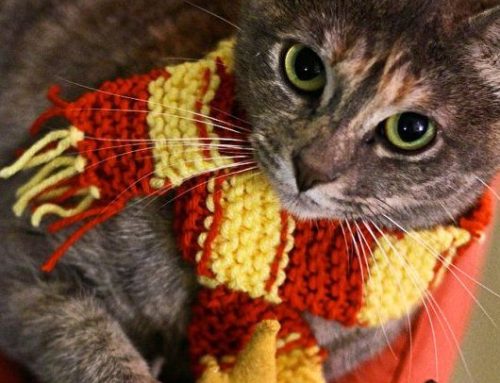1. What exactly does an animal communicator do?
 Animal Communication is the ability to talk with an animal telepathically. An Animal Communicator is a person that is able to send and receive messages to these animals through various methods such as creating images, feelings, thoughts and/or physical sensations. Many people call it a psychic ability. That is actually something very different. Animal communication is a direct form of communication with your pet that doesn’t involve reading body language or making assumptions based on current or past behavior. Most animal communicators work with just a description or a picture of the animal instead of one on one contact.
Animal Communication is the ability to talk with an animal telepathically. An Animal Communicator is a person that is able to send and receive messages to these animals through various methods such as creating images, feelings, thoughts and/or physical sensations. Many people call it a psychic ability. That is actually something very different. Animal communication is a direct form of communication with your pet that doesn’t involve reading body language or making assumptions based on current or past behavior. Most animal communicators work with just a description or a picture of the animal instead of one on one contact.
Animal Communication can be helpful for many common problems with domestic pets of all kinds, as well as wild animals, animals in zoos or sanctuaries, ranches and much more. Communicators can assist with behavioral issues as well as physical concerns, help find a lost pet, coping with death and dying and assist you in having a better relationship with your animal.
2. Tell us about the first time you discovered you could communicate with animals. Do you think this is an ability that you’re born with or can it be learned?
I’ve always had a way with animals. Ever since I was young, I seemed to know what they were thinking, feeling and sometimes saying to me. Growing up in Alaska, I never knew there was any such thing as an Animal Communicator. It wasn’t until I took a trip to Africa to volunteer with the wildlife rehabilitation centers in 2009 that I realized how powerful the gift is when you really tap into it.
When I was in Namibia, I had the honor of taking care of one of Africa’s oldest cheetahs, a large male named Goeters. In this center, we were able to spend the night in the enclosures with any of the animals that were already socialized. I loved to go into Goeter’s enclosure to hang out with him. One night, when we were lying on the mat snuggling under a sleeping bag, I felt a cold chill on my back. I remember talking to this amazing cheetah in my mind, thinking “Goeters, it is really cold out. I wish you would lay by my back for a while and keep me warm.” And would you believe? Moments later, Goeters got up from the front where he was laying by me, stepped over by body and then laid down by my back! I couldn’t believe that he actually heard me! It was as if he was reading my mind.
After about 15 minutes I asked in my head again…“Goeters, can you come back to the front now and snuggle again?” Sure enough, he got up and stepped over me to lie down in front. I found myself with tears in my eyes because I was talking to a cheetah! From that moment on, I knew I had to use this special gift to help others. When I got back to Los Angeles, I looked up training programs to study more in depth in the field of Animal Communication. Carol Gurney of the Gurney Institute is where you want to go for the best education and certification programs.
I believe that everyone has the ability to communicate with animals or their pets. You just need to have an open mind and trust the information that comes to you. It is just like when you have a premonition about someone or something. You are picking up on their thoughts and energy. Animals are a pure source of energy. They are very in tune with their environment and people around them. They know when you are sad or having a bad day. They can sense when you are coming home before they ever hear your car. Tuning in to animals can sometimes be like going into a meditation or relaxed state of mind and then you allow the messaged to flow. Children are already in this state so they find it easier to connect with animals then adults.
3. Explain your process a bit. Do you work from a photo or in-person? Do you sense what a cat thinks/feels or do you hear them “talk” to you?
In an Animal Communication Session, I have people send me their pet’s basic information and two of their most recent photos. I will then do a short consultation over the phone to see how I can assist them. The less detailed information about the pet the better. Animal Communicators just need the questions the person wants to ask their pet. I then set up a time for communicating with the animal, which takes about an hour. I ask the questions and let the animal to communicate with me however they wish. Most of the time, I have a visual image and can hear the animal’s voice in my mind. Animals have very distinctive voices, just like people do! Some talk fast, others are slow and I had one kitty recently that talked like he was a member of the New York Mafia! Later, I schedule an hour-long follow up session, when I share the information I received and valuable feedback from the animal. Lost animals may take a few sessions and tend to be the most difficult, due to the animal’s stress and fear.
4. What are some areas that Animal Communicators can assist with?
- Behavior Problems (fear, aggression, separation anxiety, unwanted behaviors)
- Performance Training
- Quality of Life Issues
- Human/Pet Relationships
- Lost Animals
- Sick or Dying Animals
- Introducing Animals to each other & Adopting Animals
- Details about a Rescued Animal’s Past Life or Connection to New Owner
- Information on Past owners, Breeders or Previous Homes
5. Are there ever animals that you can’t communicate with, for whatever reason?
When an animal doesn’t want to communicate, they may be in a state of fear or just not open to sharing information with the communicator. Animals have good and bad days – just like people, and they also can decide whether or not they want to speak to the person who is asking the questions.
6. You’ve mentioned communicating with cats that have passed on. Have you ever learned anything that surprised you or the cat’s former guardian?
One of my favorite ways to communicate with animals is after they’ve transitioned out of their physical body. All animals are very spiritual creatures. After they pass, they often have messages for their human friends, such as advice on how to live a better life. They may tell you they are coming back in another form or that they will stay the “other side” to help you in your life. Two of my cats that have crossed over the “rainbow bridge” help me communicate with animals that are lost or are in the process of transitioning. My cat Princess now appears to me as a hummingbird! People are usually surprised how much their pet knew of about their lives and how well they understood them. Pets just want their human friends to be happy.
7. Why is it so challenging to find lost animals?
Helping lost animals find their way back home is very rewarding, but it can be tricky. It depends on how far they have wandered away from home, whether they are able to give distinctive clues as to where they are, and if their human family is willing to make the effort to go out to look and stay in mental communication with their pets. Sometimes pets do leave to die or they are just ready to move on to another family or be on their own. Some just go off and explore for a while and come back on their own. Some just don’t like the energy of the home, other pets or people they are around.
One of the ways to help your pet find its way back home is to visualize your home surrounded with a bright white or pink light, and then send that light up to the sky so the animal can set it. Just like how they would signal for Batman to come in the old Marvel comics. Then mentally communicate with your pet and tell them to look for the light and follow it home. Just because they are animals doesn’t mean they can’t get lost or turned around. Sometimes a cat has been chased for miles by another animal and loses all sense of direction, or they are hiding and too afraid to come out. Many times, your pet is literally just a few blocks away but needs help coming back.
8. Tell us about the different animal species you’ve worked with over the years.
Most of the animals I worked with are dogs, cats, horses and birds, but I’ve talked to fish, turtles, a pair of baby ravens, snakes, a wolf, hawks, a zebra and other wild animals at the rehab centers that I volunteer for in Los Angeles
9. What sorts of things have homeless cats communicated to you?
Many homeless cats are simply lost and unable to find their way home, or were abandoned by their families. If they had families before, most of them just want to find a loving home again. They don’t know why they were just left behind, especially senior pets that had been with a family for many years. Cats are born on the streets with a steady food supply and a safe environment tend to prefer living outside. Kittens can adapt to life indoors but they miss their mothers if they don’t have other kitties to bond with.
10. What sorts of things have you learned from talking with cats?
Cats see, hear and feel everything! They see colors. They know what you are saying when you are talking to them. Cats like to know what is going on with you during the day and where you go! If they are inside cats then it would be so exciting for them if you just say, “Fluffy, I’m going to work/school/the gym right now and will be back at 5pm.” They want to know what you do when you’re not at home and they want to be greeted when you return. They like learning just like you! They also like to have a job of some sort. It gives them a sense of purpose.
Remember, you have access to the whole outside world. Cats don’t. You are all they have to interact with, so when you come home and yell at your pets or punish them for something they did hours before, they get very confused. Cat and dogs can have serious separation anxiety when they aren’t in a loving environment or lack a companion. This is why it is usually better to adopt two kittens or cats at the same time.
Cats meow at you because using sound is their way of “speaking” your language. If you notice, cats don’t meow at each other. They may hiss or growl, but adult cats do not meow to speak. Momma cats will “chirp” to their young to keep them safe. As I was writing this, my cat Shamana walked over to my desk, looked up at me and MEOWED. She wanted me to open my arms so she could jump up in my lap to see what I was doing, because she was hearing the thoughts in my head. Also, as I write, my cats and dogs can all hear the pack of coyotes howling outside my window as I live in the hills. They do not wake from their lazy slumber, however, because I have talked to them all before and let them know they are safe from the dangers outside.
Any final words about cats and what they’ve taught you?
Animals have their own agenda on this planet. They want to be treated with respect, since they were here long before humans were. They are not things or toys or children. They want to experience new adventures, eat good food and enjoy health and well being, just like we do. All they want is unconditional love to match the love they have for their humans, and they want their time on earth to be worthwhile.
 Michele Guzy is a Certified Clinical Hypnotherapist, NLP Master Practitioner & Trainer, Motivational Speaker and Animal Communicator. A devoted FixNation friend and supporter, Michele is also founder of the nonprofit animal rescue organization “Krazy For Kats,” with a mission of finding forever homes for homeless and feral cats. Learn more about her life-saving work at krazyforcats.org.
Michele Guzy is a Certified Clinical Hypnotherapist, NLP Master Practitioner & Trainer, Motivational Speaker and Animal Communicator. A devoted FixNation friend and supporter, Michele is also founder of the nonprofit animal rescue organization “Krazy For Kats,” with a mission of finding forever homes for homeless and feral cats. Learn more about her life-saving work at krazyforcats.org.





